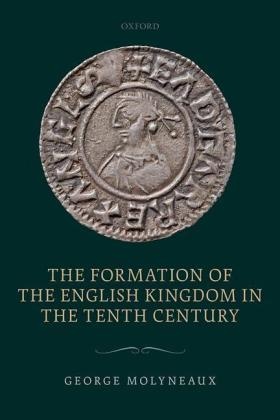Read more
Zusatztext Molyneaux's reading of the emergence of 'England' opens the mind to new possibilities and new interpretations -- which is surely the mark of good history. Informationen zum Autor George Molyneaux was born in Edinburgh and grew up in Aberdeen. He studied History at Christ Church, Oxford, coming top in the university in both his Preliminary and Final examinations. He was then elected to an Examination ('Prize') Fellowship at All Souls College, Oxford, where he researched and wrote the present book. He has also published articles in the English Historical Review, the Transactions of the Royal Historical Society, the Journal of Ecclesiastical History, Early Medieval Europe, and Anglo-Saxon England, receiving the Royal Historical Society's Alexander Prize for his article on the Old English Bede (English Historical Review, 2009). He is now a barrister at Blackstone Chambers in London, and remains a Fellow of All Souls College. Klappentext The only modern study devoted to the question of how the English kingdom was formed, arguing that the eleventh-century English kingdom was defined, not by any earlier vision of English unity, but by a series of administrative reforms that appear to have been implemented in the mid- to late tenth century. Zusammenfassung The only modern study devoted to the question of how the English kingdom was formed, arguing that the eleventh-century English kingdom was defined, not by any earlier vision of English unity, but by a series of administrative reforms that appear to have been implemented in the mid- to late tenth century. Inhaltsverzeichnis Introduction: The Unification of the English? 1: The Geographical Extension of Cerdicing Domination 2: The Cerdicings and their Greater Subordinates from the Late Ninth to the Mid-Tenth Century 3: The Cerdicings and the General Populace from the Late Ninth to the Mid-Tenth Century 4: Administrative Change in the Mid- to Late Tenth Century 5: The Implications of Administrative Change Conclusion: The Formation of the English Kingdom and the "Anglo-Saxon State" Bibliography ...

